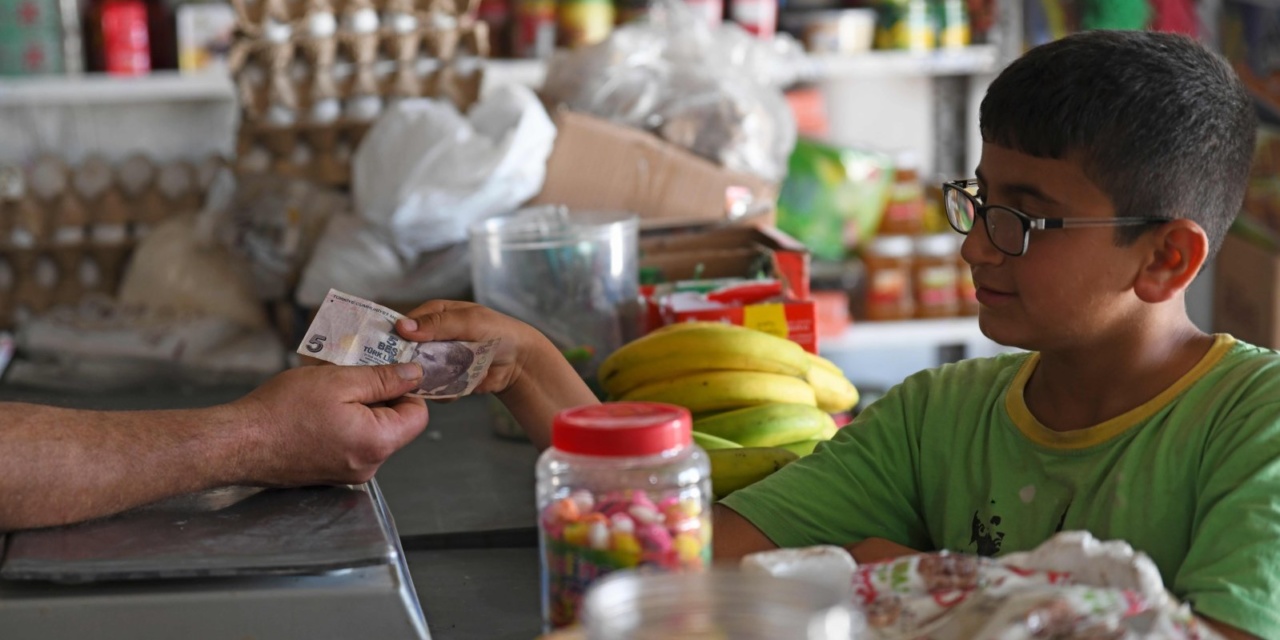A boy pays in Turkish lira in a shop in Jinderes in northwest Syria, June 10, 2020 (AFP)
The Turkish lira is set to replace the Syrian pound as the currency in opposition-controlled northwest Syria.
The opposition interim government and local councils have announced that they are switching to the lira as the Syrian pound collapses, feeding inflation amid shortages of food, fuel, basic goods, and electricity.
The Turkish currency will circulate in markets in parts of Idlib and Aleppo Provinces. The measure was announced on Tuesday by the President of the Syrian Provisional Government, Abd al-Rahman Mustafa.
To protect citizens’ savings due to the rapid depreciation of the Syrian lira, we intensified our negotiations with the relevant Turkish authorities and took the first step in the process of launching small TL banknotes, which are vital in daily life, in the north of Syria.
Towns and cities adopting the currency, in denominations of 5, 10, and 20 Turkish Lira, include Afrin, Azaz, al-Rai, Marea, Jarablus, and al-Bab.
The Syrian pound has sunk to more than 3,000:1 v. the US dollar, compared to 500:1 last autumn and 47:1 at the start of the Syrian uprising in March 2011.
The collapse has been fed by regime corruption, a feud between the regime and Bashar al-Assad’s billionaire cousin Rami Makhlouf, and a crisis in the Lebanese banking system, in which many Syrian individuals and companies hold accounts.
US sanctions are being further tightened next week with the implementation of the Caesar Act. The measure imposes restrictions over the regime’s crimes against humanity such as the deaths of tens of thousands of detainees by execution, torture, or inhumane conditions.
Assad, under pressure from his essential ally Russia, removed the Trade Minister last month and dismissed Prime Minister Imad Khamis on Thursday.
Opposition areas have not been spared from the fallout. The price of bread has risen by 60%.

